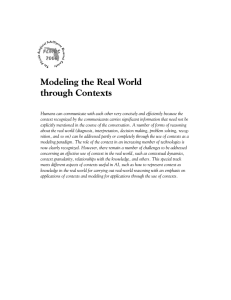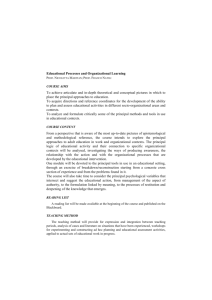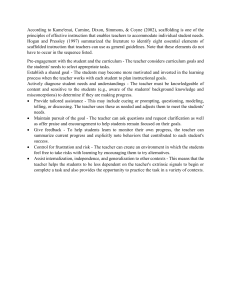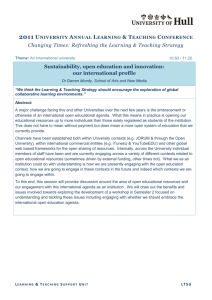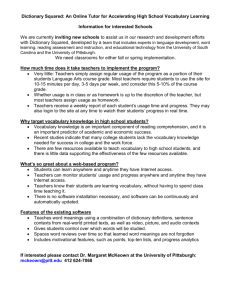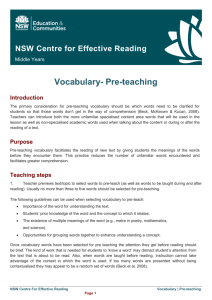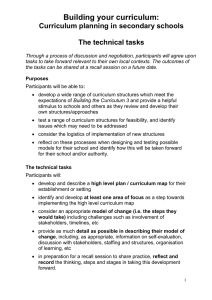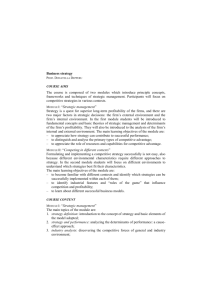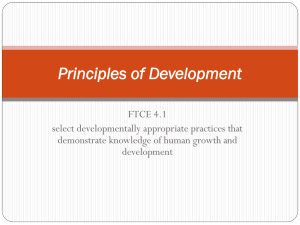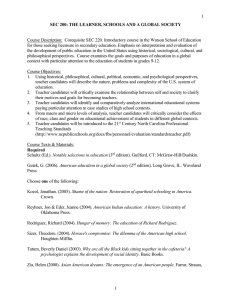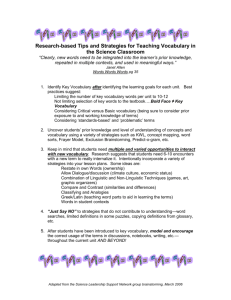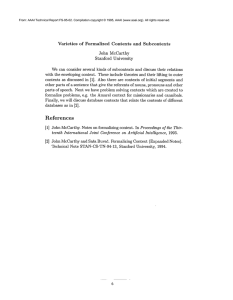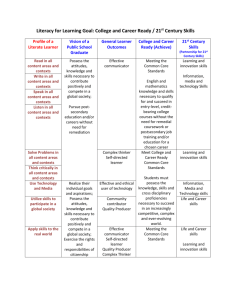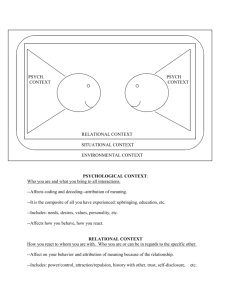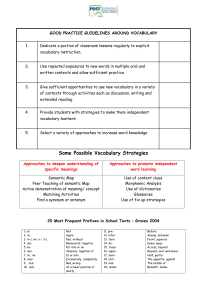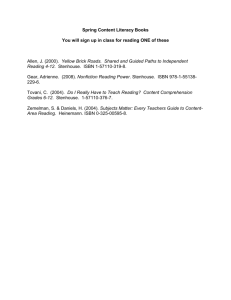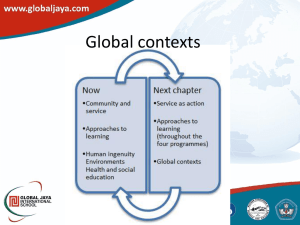Word knowledge is not an all or nothing proposition
advertisement
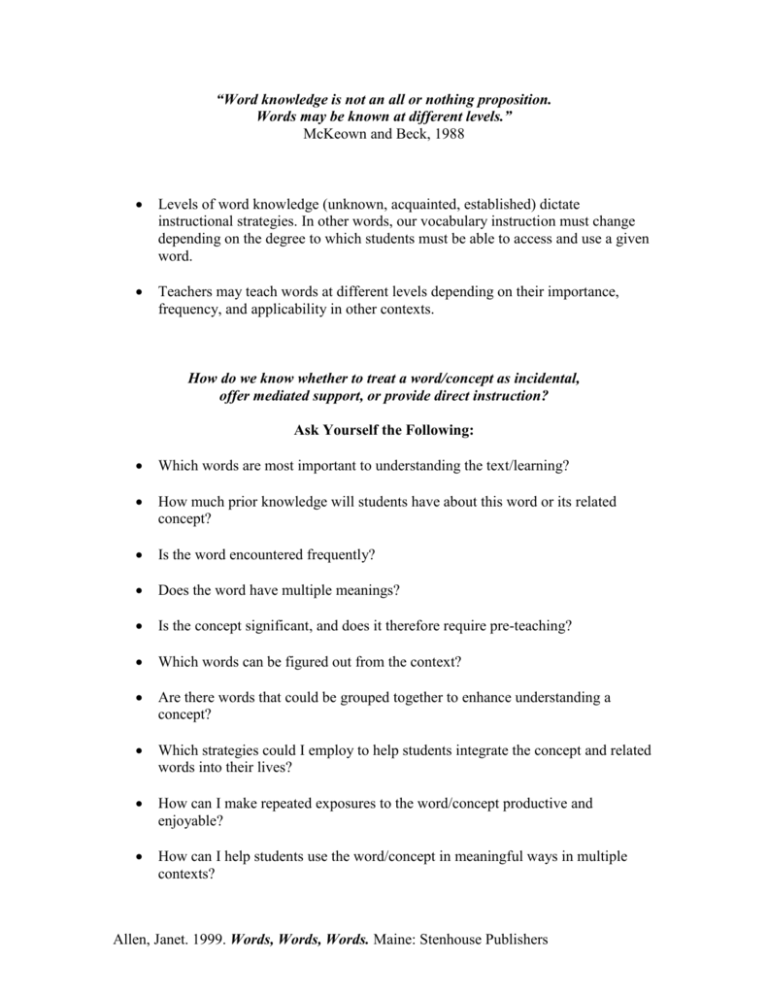
“Word knowledge is not an all or nothing proposition. Words may be known at different levels.” McKeown and Beck, 1988 Levels of word knowledge (unknown, acquainted, established) dictate instructional strategies. In other words, our vocabulary instruction must change depending on the degree to which students must be able to access and use a given word. Teachers may teach words at different levels depending on their importance, frequency, and applicability in other contexts. How do we know whether to treat a word/concept as incidental, offer mediated support, or provide direct instruction? Ask Yourself the Following: Which words are most important to understanding the text/learning? How much prior knowledge will students have about this word or its related concept? Is the word encountered frequently? Does the word have multiple meanings? Is the concept significant, and does it therefore require pre-teaching? Which words can be figured out from the context? Are there words that could be grouped together to enhance understanding a concept? Which strategies could I employ to help students integrate the concept and related words into their lives? How can I make repeated exposures to the word/concept productive and enjoyable? How can I help students use the word/concept in meaningful ways in multiple contexts? Allen, Janet. 1999. Words, Words, Words. Maine: Stenhouse Publishers

